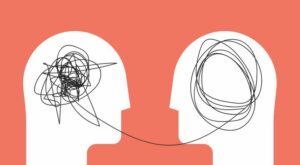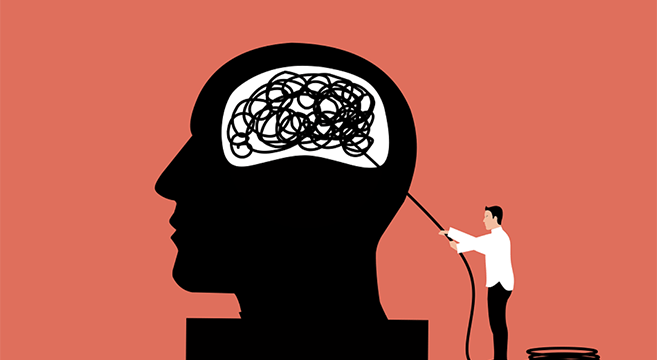Eye Movement Desensitization and Reprocessing, is a relatively new treatment that is effective in treating mental health disorders. One such disorder is OCD or obsessive-compulsive disorder. EMDR therapy can help people with OCD to overcome the intrusive thoughts and compulsions that come with the condition. In this blog post, we will discuss how EMDR works and how it can be used to treat OCD.
Contents
What Is EMDR Therapy?

EMDR therapy is a type of cognitive-behavioral therapy that was developed in the 1980s by Francine Shapiro. It is a form of psychotherapy that uses bilateral stimulation, or eye movements, to help people process and reprocess memories. It is believed that this type of therapy can help to reduce the negative emotions that are associated with traumatic memories.
EMDR therapy is effective in treating a variety of mental health disorders, including PTSD, anxiety, and depression. It is also being used to treat OCD.
How Does EMDR Work?
It is believed that EMDR works by helping to reduce the intensity of negative memories and emotions. When we experience a traumatic event, our brains can become stuck in a state of “hyperarousal.” This means that we are constantly re-experiencing the trauma, which can lead to symptoms of PTSD. EMDR therapy is thought to help reduce the symptoms of PTSD by stimulating different parts of the brain, which helps to “unstick” the memories and emotions associated with the trauma. Through EMDR once you have developed the ability to calm yourself and fully accept that your fears are not your fate, we can address or target the specific obsession or compulsion by noticing how it affects your body as you recall the incident(s).
What Is OCD?
OCD is a mental health disorder that characterizes by intrusive thoughts, compulsions, or both. People with OCD may have obsessions, which are persistent thoughts, images, or urges that cause anxiety or distress. They may also have compulsions, which are repetitive behaviors or mental acts that they feel compelled to do to reduce the anxiety caused by their obsessions.
EMDR For OCD Treatment
There is growing evidence that EMDR can be an effective treatment for OCD. A study published in the Journal of Clinical Psychiatry found that EMDR was more effective than cognitive-behavioral therapy in the treatment of OCD. The study found that people who received EMDR therapy had a significantly greater reduction in OCD symptoms than those who received CBT.
Working

EMDR therapy helps people with OCD to overcome their intrusive thoughts and compulsions. During EMDR therapy, the therapist will use bilateral stimulation (eye movements) to help the person process and reprocess the memories and emotions associated with their OCD. This helps to reduce the intensity of the symptoms and helps the person to live a normal life.
EMDR therapy is also effective in treating other mental health disorders, such as depression and anxiety. If you or someone you know is struggling with OCD, consider seeking out a therapist who specializes in EMDR therapy.
In simple terms, EMDR for OCD will first focus on the current OCD symptoms that show up in present life by targeting the obsession behavior that is most distressing and having the client imagine the blocking of the compulsion. Then, if there are any memories from childhood or adolescents associated with the initial behaviors of the OCD, the person, and their therapist will target those memories as well. Once both current and past targets go through desensitization and reprocessing, the client and therapist can work on any future events that can cause the person to have OCD symptoms again.
How It Helps

Studies and researches have various benefits for EMDR in treating OCD.
- EMDR can help people with OCD to overcome their intrusive thoughts and compulsions.
- EMDR therapy works by helping to reduce the intensity of negative memories and emotions.
- It also helps in combating the emotional downsides. These include negative self-esteem, lack of concentration, hypervigilance as well as intense and unwanted intrusive thoughts.
- It reduces the intensity as well as the frequency of flashbacks and nightmares.
- Sleep quality also shows massive improvement.
- A study published in the Journal of Clinical Psychiatry found that EMDR was more effective than cognitive-behavioral therapy in the treatment of OCD.
Things To Remember
If you are considering EMDR for OCD, there are a few things to keep in mind.
- First, it is important to find a therapist who has appropriate training and experience in EMDR therapy.
- Second, be sure to tell your therapist about any medications you are taking, as well as any medical conditions you have.
- Third, it is crucial, to be honest, and discuss your symptoms and your history of OCD in detail with your therapist.
- Fourth, be aware that EMDR therapy can be emotionally challenging. It is important to work with a therapist you trust and feel comfortable with.
- Fifth, be patient. The process of EMDR therapy can take time, but the goal is to eventually reduce or eliminate your OCD symptoms.
Conclusion
EMDR has become a popular form of treatment for OCD and other mental health disorders due to its effectiveness. If you or someone you know is struggling with OCD, consider seeking out a therapist who specializes in EMDR therapy. It’s important to remember that everyone experiences symptoms of anxiety and depression differently. What works for one person may not work for another. If you think EMDR could benefit your OCD, please speak with a mental health professional for treatment.
If you are looking for affordable Online OCD Counseling MantraCare can help: Book a trial OCD therapy session


